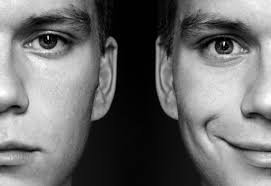Generic erosion will reduce bipolar disorder market to $4.2 bn by 2024
May 11, 2016 | Wednesday | Features | By BioSpectrum Bureau
Generic erosion will reduce bipolar disorder market to $4.2 bn by 2024
(Photo Courtesy: www.onedio.co)
The treatment market for bipolar disorder is set to decrease from $5.8 billion in 2014 to $4.2 billion by 2024, at a negative Compound Annual Growth Rate (CAGR) of 3.2%, as generic erosion continues to deter the development of novel therapies, according to research and consulting firm GlobalData.
The company's latest report states that this decline, which will occur across the eight major markets (8MM) of the US, France, Germany, Italy, Spain, the UK, Japan and Canada, is going to be particularly steep between 2015 and 2017.
The key event will be Otsuka's Abilify, which was the market-leading brand with 40% of sales across the 8MM in 2014, experiencing generic erosion in the US and five major European countries.
Mr Thomas Parker, GlobalData's Senior Analyst covering Neurology and Ophthalmology, says: "Broadly speaking, the bipolar disorder market is widely genericized, and the patent expiration of Abilify is just one of many over the forecast period which will contribute to market stagnation.
"In cost-conscious Western markets, discounted prices ensure that generic drugs are prescribed over branded equivalents. Opportunities for new and existing players are limited, as the uptake of novel pipeline products would be hindered by their premium price point. As a result, pharma companies have deprioritized bipolar disorder, meaning the late-stage pipeline is sparse."
Despite such a bleak market outlook for bipolar treatment, there will be minor growth between 2020 and 2024, as the impact of generic erosion becomes saturated and the uptake of Abilify Maintena and Vraylar continues.
Mr Parker continues: "For the market to be truly reinvigorated, the significant unmet needs of bipolar patients must be addressed. While the current treatment landscape includes a high number of established products that can effectively manage acute manic symptoms and reduce the frequency of relapses, the need remains for novel, effective treatment options for bipolar depression.
"It is known that bipolar patients spend a significantly greater amount of time experiencing depression than mania, and there are currently only three approved drugs for this indication in the US, all of which are associated with unfavorable side effects. In this way, there are considerable opportunities for players looking to enter the future bipolar market."









